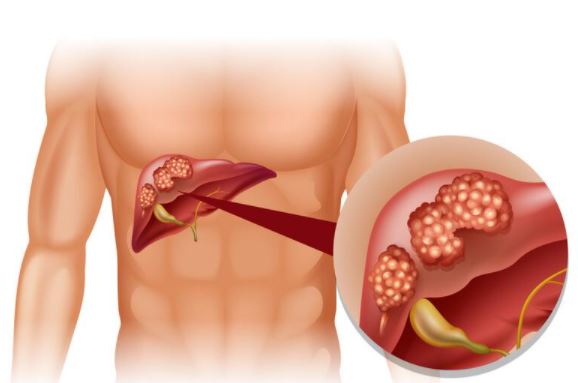Description
Natural Treatment To Heal Hepatitis A naturally. Please to join us to cure hepatitis A disease because we have one tisane to get ride of hépatitis So, Find out about the treatments for hepatitis A, including what you can do to relieve your symptoms at home and how to reduce the risk of passing the disease
Please to Join us
What is hepatitis A?
Hepatitis refers to inflammation of the liver caused by exposure to toxins, alcohol misuse, immune diseases, or infection. Viruses cause the majority of cases of hepatitis.
Hepatitis A is a type of hepatitis that results from infection by the hepatitis A virus (HAV). This is an acute (short-term) type of hepatitis, which usually requires no treatment.
According to the World Health Organization (WHO)Trusted Source, 1.4 million cases of hepatitis A occur around the world each year. This highly contagious form of hepatitis can be spread through contaminated food or water. It generally isn’t serious and usually causes no long-term effects. A hepatitis A infection usually goes away on its own.
Click HERE to join us about our Natural Treatment To Heal Hepatitis A
Natural Treatment To Heal Hepatitis A
Our natural remedy also has anti-inflammatory and antioxidant properties, which help in the treatment and prevention of liver problems, so it is the best natural remedy for curing hepatitis A. It also fights against viruses that cause liver disease. ‘hepatitis. It also provides antioxidants which help maintain the overall health of the liver. Simply put, it helps the body fight viral infections and cleanse the liver. It is the miracle solution to cure hepatitis A
Click HERE to join us about our Natural Treatment To Heal Hepatitis A
Price our Natural Treatment To Heal Hepatitis A : 400 €
Duration of our Natural Treatment To Heal Hepatitis A : 3 Months
Natural Treatment To Heal Hepatitis A: How to Treat Hepatitis A
- Stay in. Until any fever and jaundice have cleared up
- Rest up for two weeks
- Take care of your skin
- Eat small meals
- Get enough calories
- Avoid alcohol
- Go easy on your liver
- Keep your illness to yourself
- Please to see your doctor
Natural Treatment To Heal Hepatitis A: What foods cure hepatitis A?
- Plenty of fruits and vegetables.
- Whole grains such as oats, brown rice, barley, and quinoa.
- Lean protein such as fish, skinless chicken, egg whites, and beans.
- Low-fat or non-fat dairy products.
- Healthy fats like those in nuts, avocados, and olive oil.
Signs & Symptoms of Hepatitis A
Hepatitis A symptoms range from mild to severe. Some infected people don’t experience any noticeable symptoms, especially children under the age of six. Symptoms usually appear 15 to 50 days after you contract the virus.
The most common symptoms of hepatitis A include
- flu-like symptoms (fever, fatigue, body aches)
- light-colored stool
- dark urine
- loss of appetite
- unexplained weight loss
- jaundice (yellowing of skin or eyes)
- diarrhea
- nausea
- vomiting
- loss of appetite
- abdominal pain
- muscle soreness
- joint pain
- light-colored stool
- dark-colored urine
What causes hepatitis A and how is it contracted?
People develop hepatitis A infection after contracting HAV. This virus is typically transmitted by ingesting food or liquid contaminated with fecal matter that contains the virus. Once transmitted, the virus spreads through the bloodstream to the liver, where it causes inflammation and swelling.
In addition to transmission from eating food or drinking water containing HAV, the virus can also be spread by close personal contact with an infected person. HAV is contagious, and a person who has hepatitis A can easily pass the disease to others living in the same household.
You can contract hepatitis A by Eating:
- eating food prepared by someone with the hepatitis A virus
- drinking polluted water
- eating food handled by preparers who don’t follow strict hand-washing routines before touching food that you eat
- coming in contact with hepatitis A-infected fecal matter
- eating sewage-contaminated raw shellfish
- not using condoms when having sex with someone who has the hepatitis A virus
If you contract the virus, you will be contagious two weeks before symptoms even appear. The contagious period will end about one week after symptoms appear.
Click HERE to join us about our Natural Treatment To Heal Hepatitis A
Hepatitis A is usually spread from person to person, making it highly contagious. However, certain factors can increase your risk of contracting it, including:
- living in (or spending an extended time in) an area where hepatitis A is common, including most countries with low sanitation standards or a lack of safe water
- injecting or using illegal drugs
- living in the same household as someone who is hepatitis A-positive
- having sexual activity with someone who is hepatitis A-positive
- being HIV-positive
The WHOTrusted Source reports that more than 90 percent of children living in countries where there are low sanitation standards will have had a hepatitis A infection by age 10.
Click HERE to join us about our Natural Treatment To Heal Hepatitis A
How is it tested for and diagnosed?
After you discuss your symptoms with your doctor, they may order a blood test to check for the presence of a viral or bacterial infection. A blood test will reveal the presence (or absence) of the hepatitis A virus.
Some people have only a few symptoms and no signs of jaundice. Without visible signs of jaundice, it’s hard to diagnose any form of hepatitis through a physical examination. When symptoms are minimal, hepatitis A can remain undiagnosed. Complications due to a lack of diagnosis are rare.
Click HERE to join us about our Natural Treatment To Heal Hepatitis A
Are there complications from hepatitis A?
In extremely rare cases, hepatitis A can lead to acute liver failure. This complication is most common in older adults and people who already have chronic liver disease. If this occurs, you will be hospitalized. Even in cases of liver failure, a full recovery is likely. Very rarely is a liver transplant required. Don’t worry, we have one Natural Treatment To Heal Hepatitis A
In older children and adults, jaundice occurs in more than 70 percent of cases. Jaundice causes a yellow discoloration to the skin and eyes. It can also darken your urine and lighten the color of your stool. This occurs in hepatitis A patients because their livers cannot metabolize red blood cells that are breaking down, which causes a buildup of bilirubin.







